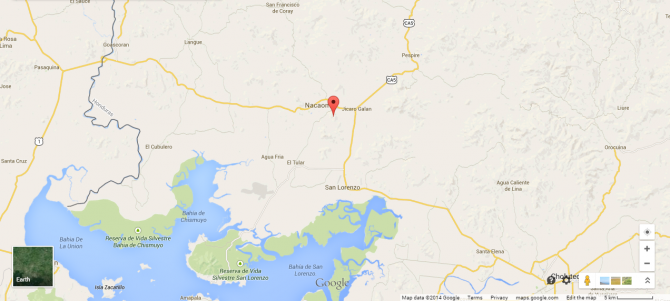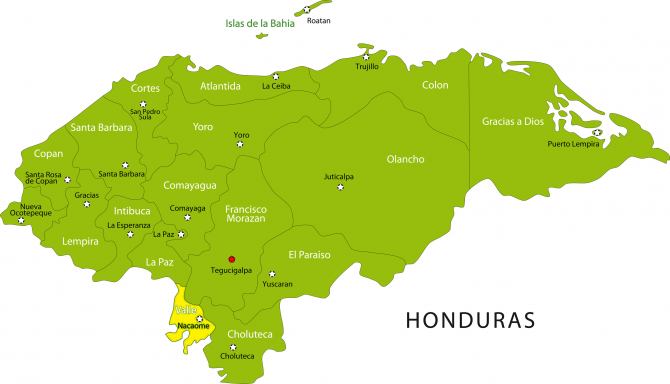El Tamarindo, Honduras
![]()
![]()
![]()
![]()
![]()
![]()
![]()
![]()
![]() Click on Programs to learn more about their work in this community
Click on Programs to learn more about their work in this community
General Information

| Population* | 470 |
| Number of homes | 89 |
| Avg # of people per home | 5.3 |
| Number and % of children | (0-14 yrs): 150 / 30% |
| Principal sources of income |
Agriculture - melons and corn |
| Water system |
Yes |
| Rural bank |
Yes |
| Number and % of house with latrines |
15%, about 20 houses |
| Electricity | Yes |
| Nearest Health Center and distance walking | CESAMO Nacaome, 1 hour 20 minutes walking distance |
| Most common illnesses | skin infections, respiratory infections, dengue fever, parasites and lice |
| Highest level of education available and distance from community | 6th grade, school in the community - 15 minutes maximum walking distance |
| Municipality | Nacaome |
| Department | Valle |
| Distance from compounds | 30 minutes |
* Population does not reflect how many patients will be seen on medical
brigades as many people from surrounding communities come seeking
Medical Brigades medical attention.
Top Three Needs Expressed
The top three needs expressed by the key community members are proper improved access to the community through improved roads, a health center in the community, and access to more education.


El Tamarindo is a small community located near the municipality of Nacaome. It is in a more desert-like area and is considerably hotter than the central and eastern regions.
El Tamarindo has one school in the community. There are 4 total teachers teaching at the school, although only 2 are paid by the government and the other 2 are volunteers. There are 65 children in primary school (1-6 grade) and 28 in kindergarten. It is a small school with only 4 classrooms. Depending on where community members live, the school is about a 5-15 minute walk from each family home.
This community does have a water system. It is a pump system that pumps water from a well to the rest of the community. It was constructed in 2005 by the Peace Corps. 74 houses are connected to the water system. It is maintained and chloronated by community volunteers.
The closest heatlh center to the community is in Nacaome. It is a CESAMO, the larger of the two types of health centers that the Honduran government offers (CESAMOs and CESARs). CESAMOs typically have at least one doctor and several nurses on duty and even sometimes a dentist if they are in a large enough area. To get to the health center, community members must cross a nearby river. In the dry season (approximately January through April), the river is low enough to cross and it only takes 20 minutes to reach the health center. However, in the rainy season (approximately May through December - the majority of the year), community members cannot cross the river and it takes about an hour and a half to reach the health center walking. The most common diseases are respiratory infections, skin infections, diarrhea, parasites, and lice.
The main source of income in the community is agriculture. Some community members grow beans and corn on land that they own - most use it for their own consumption while some do sell it. The majority of people work in agriculture on large plantations for melon and sugar cane companies. There are also some community members who make and sell fruit juices as a way of making income. The community members have access to credit and bank accounts through a small community bank.
This community also works with one of our partner organizations in Honduras, Agrolibano. Agrolibano is an agricultural organization that has a non-profit sector that we work with to help provide medical brigades and public health projects.
Please check back soon for pictures of El Tamarindo!